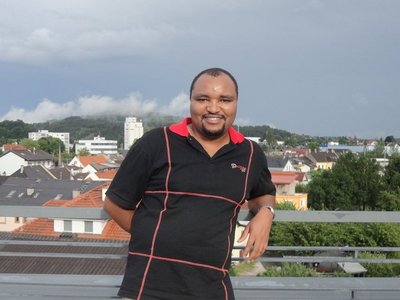

I came to Austria in 2012 to conduct my studies on the role of social workers in addressing the trauma of poverty from a Kenyan perspective. My research was part of the APPEAR projectProfessional Social Work in East Africa - Towards Sustainable Impact | PROSOWO, which aimed to promote professional social work in East Africa. Extreme poverty is a tormenting, dehumanising and distressing daily phenomenon for the poor and vulnerable. It can cause extreme distress to the non-resilient poor and lead to trauma. The study sought to understand the complexities and divergent trauma-related problems associated with poverty, especially in the Kenyan context, which may be different from the Western context and other places in the world. This was informed by the fact that the conceptualisation and manifestation of trauma may be different in various cultural settings. My study aimed at creating new insights into the field of trauma management, identifying a different perspective to the trauma concept. My research also identified existing indigenous knowledge and approaches/practices that can be adopted by social workers in addressing the trauma of poverty. Most importantly, the study envisaged that, if social workers played an active role and effectively identified and addressed the trauma of poverty, they would be enhancing their clients’ capability to attain socio-economic and psychological well-being, thus fostering social development and ultimately contribute towards poverty reduction.
The diverse experiences I had during my doctoral studies at the Alpen-Adria University Klagenfurt equipped me with the ability to undertake challenging roles in counselling psychology, especially as coordinator for research in the department of counselling psychology in my home institution, the Catholic University of Eastern Africa, and also enriched my knowledge and competency in social work and research. I became more culturally aware and appreciative of other diverse cultures. I also got a positive outlook on resolving country-specific issues with home-grown solutions. The scholarship allowed me to create academic networks, which help me in addressing current issues in the country and developing indigenous solutions to local problems through an integrative needs-based approach.
In addition, I sincerely appreciate my supervisor Prof. Klaus Ottomeyer for his supervision, moral support, expertise; technical advice and professional guidance that made it possible for me to endure throughout the writing of this dissertation. He was a pillar of hope and a role model to emulate. I am grateful to Prof. Helmut Spitzer for his encouragement, assistance, professional advice and moral support, which gave me hope and determination to complete my dissertation. Also for his expertise and knowledge that helped in shaping my research ideas. Also, I thank Prof. Gidraph G. Wairire from the University of Nairobi-Kenya, for his support and professional advice that helped especially in the data collection phase. Thank you for your dedication and encouragement to see me through the completion of my dissertation.
Elijah Macharia Ndungu'u is a lecturer in Counselling Psychology and Research Methods at The Catholic University of Eastern Africa, Nairobi-Kenya in the Department of Counselling Psychology. He is also an adjunct lecturer in counselling psychology at St Paul’s University-Nairobi, at the Faculty of Social Sciences. He holds a BA in Social Work from the University of Nairobi, and an MA in Counselling Psychology from the United States International University-Africa. In 2015 he received his PhD in Psychology from the Alpen-Adria University Klagenfurt. Elijah was nominated for his PhD studies within the APPEAR academic partnership PROSOWO.
Managing international projects and scholarship programmes has been one of the OeAD’s core tasks for years. Thus, the OeAD is also responsible for the higher education cooperation programme APPEAR. APPEAR has promoted cooperation between Austrian higher education institutions and higher education institutions in the priority countries and regions of the Austrian Development Cooperation since 2010. The project is financed from funds of the Austrian Development Cooperation.
